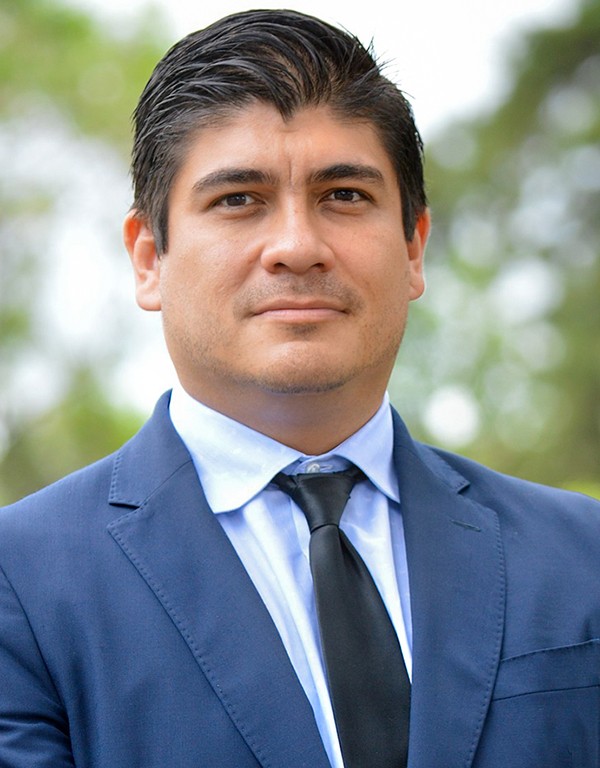Former Costa Rican president to speak on democracy and the planet
By Megan DeMint
Carlos Alvarado Quesada, former president of Costa Rica, will give the Bartels World Affairs Lecture on Wednesday, March 22, at 6 p.m. in the Alice Statler Auditorium.
Hosted by the Mario Einaudi Center for International Studies, the lecture will explore how conservation and sustainability can preserve democracy around the world – a question that guided Alvarado’s administration from 2018 to 2022.
The lecture will be followed by a reception in Park Atrium. A free ticket is required. eCornell will livestream the event for national and international audiences, including alumni.
Costa Rica is a global biodiversity hotspot, with more than one-quarter of the nation’s land protected in parks and preserves.
“President Alvarado sought to balance the pressures to increase growth and development in Costa Rica while protecting our natural capital,” said Viviana Ruiz-Gutierrez, co-director of the Center for Avian Population Studies in the Cornell Lab of Ornithology, who is Costa Rican.
Ruiz-Gutierrez has published an explainer about how Alvarado’s policies engaged citizens in climate action.
In 2019, Alvarado launched a plan that aimed for a decarbonized economy with net-zero emissions by 2050. “It included significant measures in basic infrastructure and economic sectors, such as public and private transport, energy, industry, agriculture, waste management and soil and forest management,” Ruiz-Gutierrez said.
A writer and political scientist, Alvarado is currently Professor of Practice of Diplomacy at Tufts University’s Fletcher School in Massachusetts. He received the 2022 Planetary Leadership Award from the National Geographic Society for his commitment and action to protect the ocean.
Alvarado’s work on the environment included protections for democracy and human rights. By participating in the Escazu Agreement that took effect in 2021, he promoted inclusive, informed and participatory climate action in Latin America and imposed requirements to protect the rights of environmental defenders in the region.
Alvarado’s visit to campus will extend through March 23 and include class visits and meetings with students and other university stakeholders.
“We are particularly fortunate to host President Quesada as a Bartels World Affairs Fellow because his work in the political sphere on decarbonization provides a global model for a more viable and just environmental, social and economic future,” said Rachel Beatty Riedl, the Einaudi Center’s director.
“President Quesada’s message is relevant for our entire Cornell community: visionary change is possible,” said Riedl, who is the John S. Knight Professor of International Studies and professor in the Department of Government (College of Arts and Sciences) and the Cornell Jeb E. Brooks School of Public Policy.
This year’s lecture is moderated by Mario Herrero, professor of sustainable food systems and global change in the Department of Global Development (College of Agriculture and Life Sciences), and is part of the Einaudi Center’s work on democratic threats and resilience. The event is cosponsored by Einaudi's Latin American and Caribbean Studies Program.
The Einaudi Center’s Bartels World Affairs Lecture brings distinguished international figures to campus each academic year to speak on global topics and meet with Cornell faculty and students, particularly undergraduates. The lecture and related events are made possible by the generosity of Henry E. Bartels ’48 and Nancy Horton Bartels ’48.
Megan DeMint is a communications specialist for Global Cornell.
Media Contact
Adam Allington
Get Cornell news delivered right to your inbox.
Subscribe

